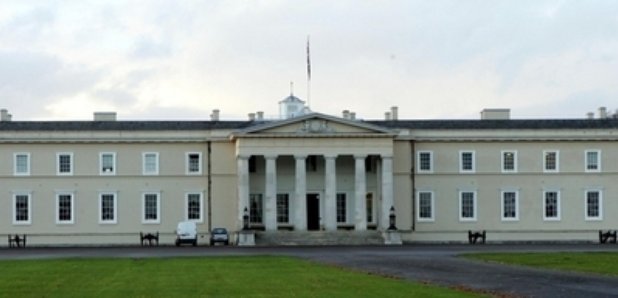Female Officer Cadet, 21, Found Dead At Sandhurst
8 February 2019, 15:14 | Updated: 8 February 2019, 15:16

A female officer cadet has died in an apparent suicide at the prestigious Sandhurst military academy following a party.
The unnamed 21-year-old was discovered in her room at the Royal Military Academy Sandhurst, Berkshire, on Wednesday afternoon.
It is understood she was spoken to after failing to return to her barracks following a party on the base over the weekend.
But aside from the minor disciplinary incident, there is no suggestion of further wrongdoing.
A Ministry of Defence (MoD) spokesman said: "We can confirm that an incident has occurred at Royal Military Academy Sandhurst resulting the death of an officer cadet, our thoughts are with the family at this difficult time."
It is believed the young woman joined Sandhurst last May and was in her last term at the elite academy, where all officers in the British Army are taught the responsibilities of leading soldiers in a taxing 44-week course.
A Thames Valley Police spokesman said: "Her next of kin have been informed.
"The death is being treated as unexplained but non-suspicious. A file is being prepared for the coroner."
The British Army website describes Sandhurst as "one of the world's toughest and most revered military training academies" and its motto is Serve to Lead.
Princes William and Harry both attended the institution, which has trained officers since 1812.
Harry, who graduated in 2006, went on two tours of duty to Afghanistan and qualified as an Apache aircraft commander during his decade-long military career.
Sandhurst has also hosted many famous graduates including the Sultan of Brunei, Sir Winston Churchill, fascist Sir Oswald Mosley, James Bond author Ian Fleming, singer James Blunt and Oscar-winning actor David Niven.
There is a long tradition of foreign royals training at the elite site.
One of the most prominent was King Hussein of Jordan, who attended Sandhurst as a teenager before going on to rule his country for more than four decades.






















